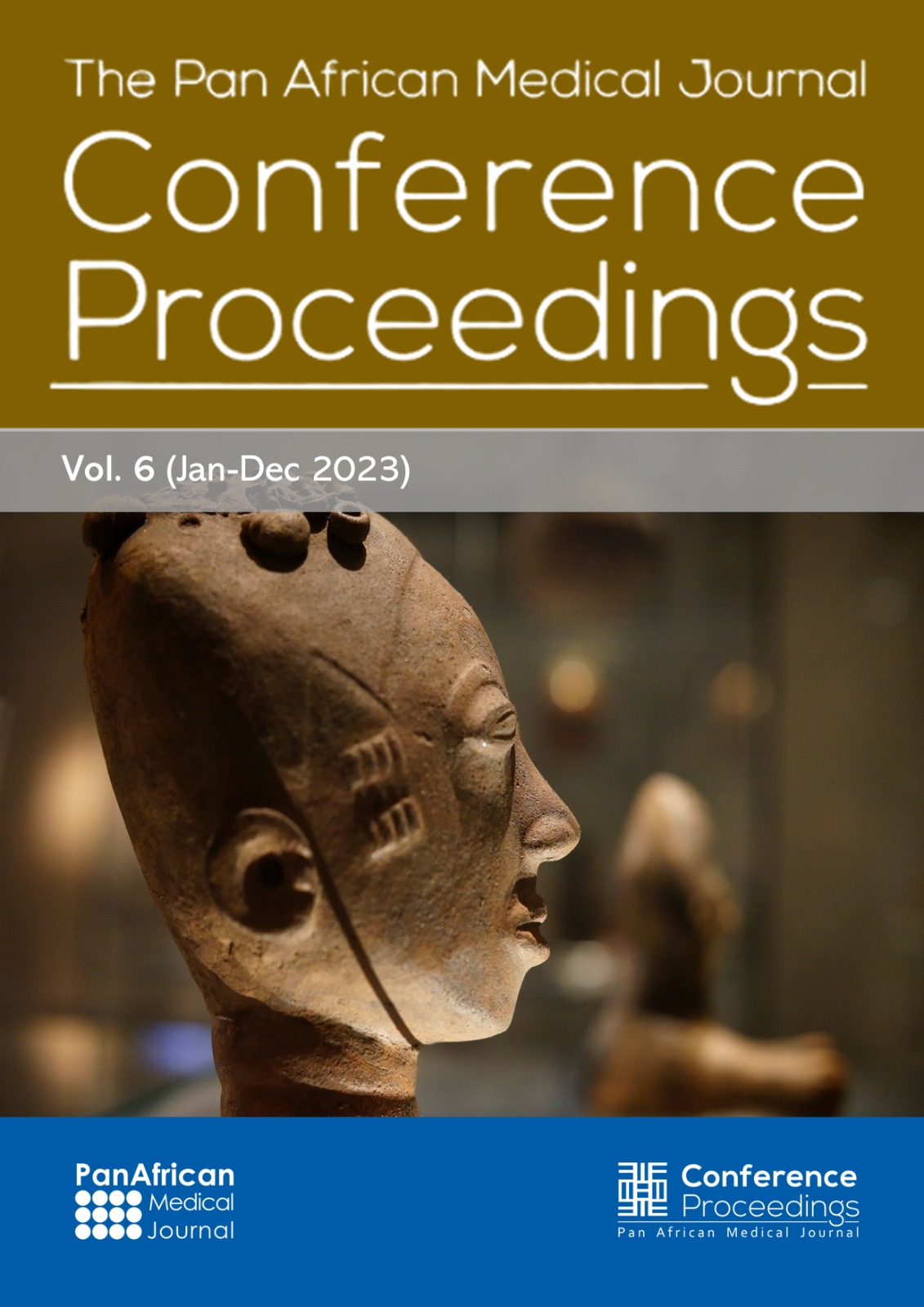Conference abstract
Reasons for not visiting the dentist: a study in a rural and an urban community in Lagos State
Pan African Medical Journal - Conference Proceedings. 2022:13(1).31
Jan 2022.
doi: 10.11604/pamj-cp.2022.13.1.861
Archived on: 31 Jan 2022
Contact the corresponding author
Keywords: Dental visits, rural, urban, utilization of dental health services
Oral presentation
Reasons for not visiting the dentist: a study in a rural and an urban community in Lagos State
Abiola Adeniyi1, Afolabi Oyapero1,&
1Department of Preventive Dentistry, Faculty of Dentistry, Lagos State University College of Medicine, Ikeja, Lagos State, Nigeria
&Corresponding author
Introduction: this research aimed to report on the pattern of use of oral health care services and self-reported barriers to assessing oral health services in Epe and Ikeja LGAs in Lagos State.
Methods: a comparative and descriptive study between a rural and urban region in Lagos State. A multi-stage sampling method was utilised to select 400 respondents and data were collected by face-to-face field interviews in households using a structured interviewer administered questionnaire. Data entry and analysis was done using SPSS version 20, p-value of <0.05 was considered significant.
Results: the majority of the urban respondents (75%) had >12 years of education, compared to those in the rural location where the majority (49%) had only 9-12 years of education. (p = 0.000). Most of the participants (80.8%; n = 320) had accessed some form of medical care, compared to 35.5% (n = 142) who had ever visited a dental clinic. Even though 25% of the rural respondents had dental complaints within the last one year, only 8% of them visited the dentist. Rural residents were significantly more likely to have a poor perception of oral health needs (p = 0.000); have financial constraints to accessing oral health (p=0.000); have transportation constraints to the dental clinic (p = 0.001) and to have a poor perception of dental treatment (p = 0.004).
Conclusion: rural residents were less likely to utilise dental facilities and also more likely to have constraints in accessing dental care. Thus, future oral health care planning should focus on reducing the barriers to care in rural areas.
Reasons for not visiting the dentist: a study in a rural and an urban community in Lagos State
Abiola Adeniyi1, Afolabi Oyapero1,&
1Department of Preventive Dentistry, Faculty of Dentistry, Lagos State University College of Medicine, Ikeja, Lagos State, Nigeria
&Corresponding author
Introduction: this research aimed to report on the pattern of use of oral health care services and self-reported barriers to assessing oral health services in Epe and Ikeja LGAs in Lagos State.
Methods: a comparative and descriptive study between a rural and urban region in Lagos State. A multi-stage sampling method was utilised to select 400 respondents and data were collected by face-to-face field interviews in households using a structured interviewer administered questionnaire. Data entry and analysis was done using SPSS version 20, p-value of <0.05 was considered significant.
Results: the majority of the urban respondents (75%) had >12 years of education, compared to those in the rural location where the majority (49%) had only 9-12 years of education. (p = 0.000). Most of the participants (80.8%; n = 320) had accessed some form of medical care, compared to 35.5% (n = 142) who had ever visited a dental clinic. Even though 25% of the rural respondents had dental complaints within the last one year, only 8% of them visited the dentist. Rural residents were significantly more likely to have a poor perception of oral health needs (p = 0.000); have financial constraints to accessing oral health (p=0.000); have transportation constraints to the dental clinic (p = 0.001) and to have a poor perception of dental treatment (p = 0.004).
Conclusion: rural residents were less likely to utilise dental facilities and also more likely to have constraints in accessing dental care. Thus, future oral health care planning should focus on reducing the barriers to care in rural areas.








